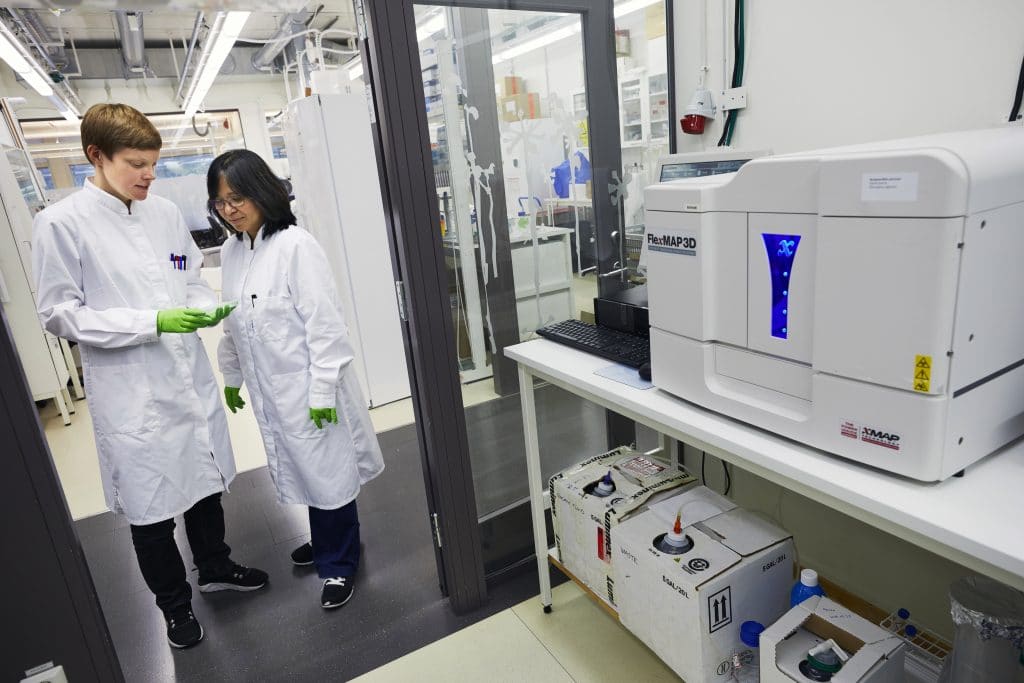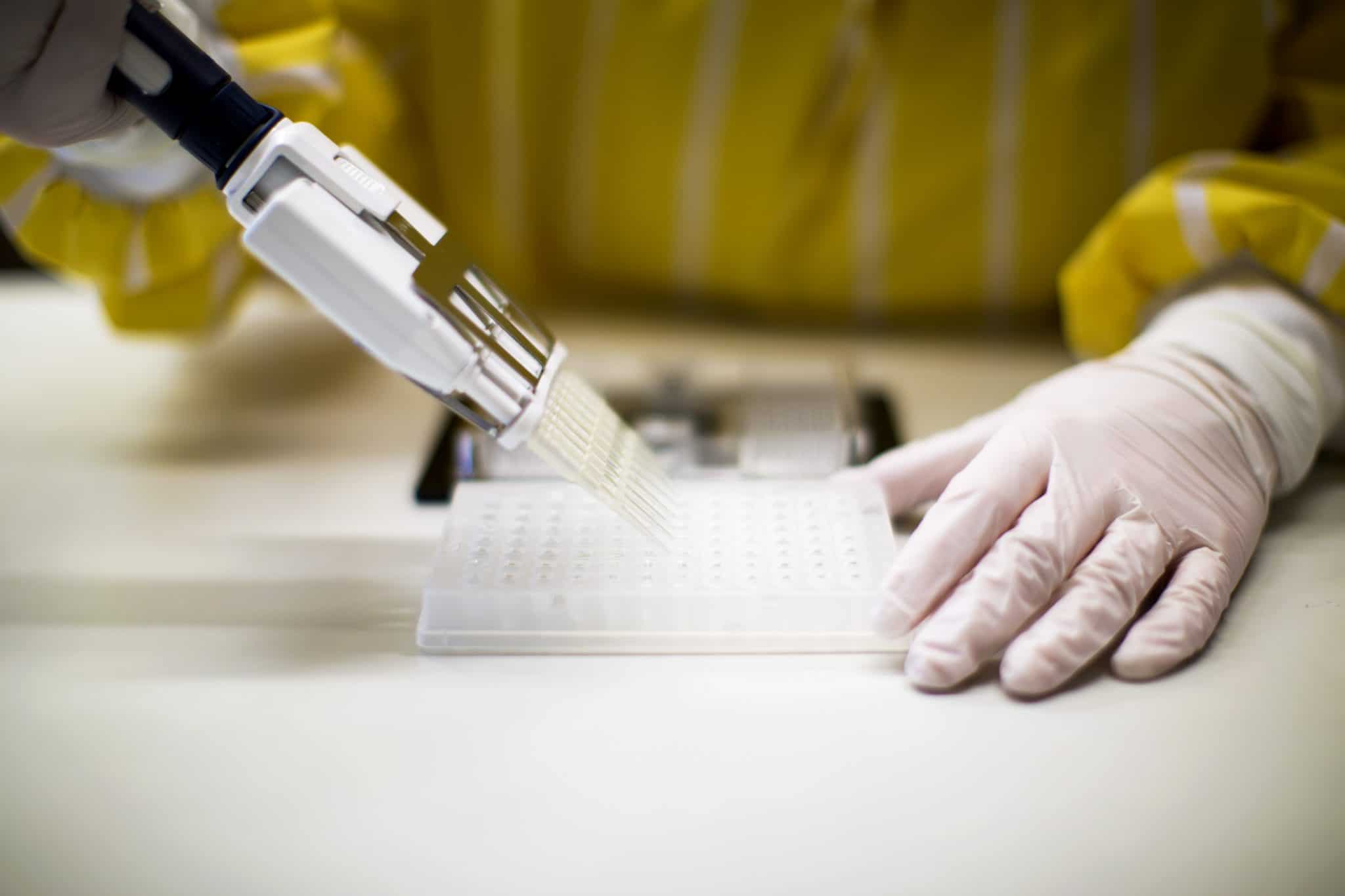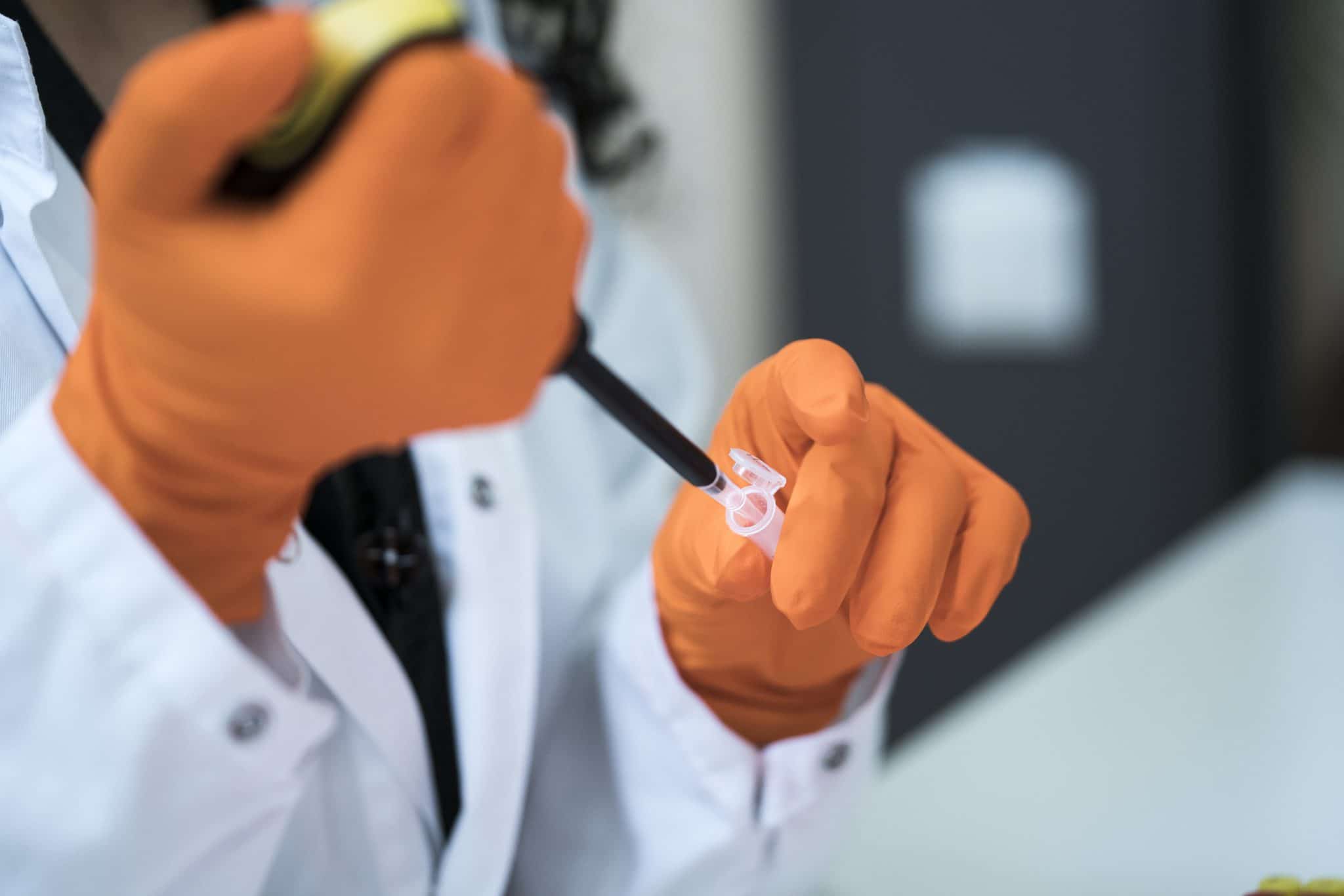Development of high-throughput serology testing capability
This effort focuses on developing and implementing a reliable serological test that can detect antibodies against COVID-19, in order to verify if an individual has previously been infected with the virus. The laboratory is currently analyzing 7 000 samples a week, using a method showing very high accuracy in the validation process.
![]() Svensk sammanfattning längre ned.
Svensk sammanfattning längre ned.

This project is a joint effort with researchers at KTH Royal Institute of Technology and SciLifeLab. It is carried out in collaboration with Danderyd Hospital, Karolinska University Hospital and the Public Health Agency of Sweden, which have been engaged in evaluating and validating the test.
The method of analysis, a multiplex bead-based method, has been developed at SciLifeLab’s Autoimmunity Profiling unit. The test is considered highly reliable and displayed accurate results for each analysis during validation.
Coordinators: Peter Nilsson (SciLifeLab/KTH), Sophia Hober (KTH).
News articles
- SciLifeLab – Danderyd Hospital staff will be tested for COVID-19 antibodies
- Dagens Nyheter – KTH-forskare positiva till tidiga resultat i antikroppstester
- NyTeknik – Nya tester visar: femtedel av sjukhuspersonal haft COVID-19
- Danderyds sjukhus: Var femte DS-medarbetare har antikroppar mot covid-19
Validating the test and making it available
Validating the test in collaboration with Danderyd Hospital and Karolinska University Hospital
To validate the test’s reliability, 200 confirmed positive and 300 confirmed negative samples were analyzed. The test was highly accurate and displayed correct results for each sample.
A trial was then carried out in collaboration with Danderyd Hospital and Karolinska University Hospital, where hospital personnel was invited to provide samples for analysis. 2 000 staff members at Danderyd Hospital and 7 400 staff members at Karolinska University Hospital took part in the study.
The first results, based on 527 individual samples from personnel at Danderyd Hospital, showed that approximately 20 % of the staff had developed antibodies against COVID-19. The study now carries on, aiming to test all staff members that wish to participate.
There is also a longitudinal study where tested individuals will be follow-up tested after three months, six months, one year and likely also after two and five years.
By repeating the testing, the researchers seek to determine who has developed antibodies to the virus and how long-lasting the antibody response is. Deeper knowledge of the antibody response and immunity towards COVID-19 will be crucial to understand the infection and taking safe measures regarding open up society.
Making the test available
High-throughput analysis of personnel in healthcare, elderly care and other vital functions is planned to be made available during summer 2020. Technology transfer to university hospital laboratories is planned to take place during early fall 2020.

Funding
The project is funded by KTH Royal Institute of Technology, Region Stockholm, Atlas Copco, Family Christian and Jennifer Dahlberg, Knut and Alice Wallenberg Foundation and the Erling-Persson Family Foundation.
 Svensk sammanfattning
Svensk sammanfattning
Den här satsningen fokuserar på att utveckla och implementera ett tillförlitligt serologiskt test som kan upptäcka antikroppar mot covid-19, och således verifiera om en individ tidigare infekteras av viruset. Laboratoriet analyserar i dagsläget 7 000 prover i veckan.
Projektet är en gemensam satsning mellan forskare på SciLifeLab och KTH. Det drivs i samarbete med Danderyds sjukhus, Karolinska Universitetssjukhuset och Folkhälsomyndigheten, som varit engagerade i att utvärdera och validera testet.
Analysmetoden har utvecklats på SciLifeLabs Autoimmunity Profiling-facilitet. Den bedöms högt tillförlitlig och visade korrekta resultat för samtliga analyser vid valideringen.
Vill du veta mer om projektet? Mer information finns i den engelska texten och i nyhetsartiklarna ovan. Du får också gärna höra av dig till oss på info@scilifelab.se (vi pratar svenska).
